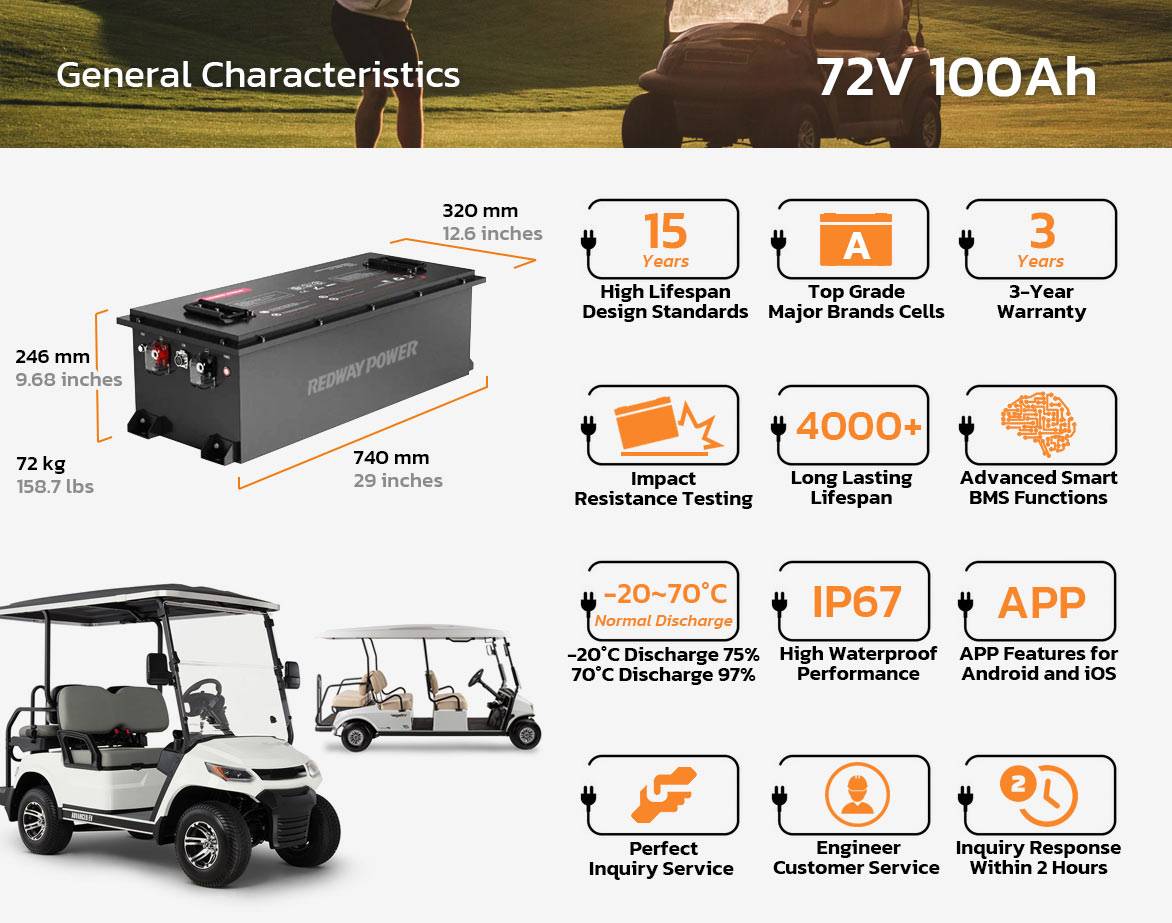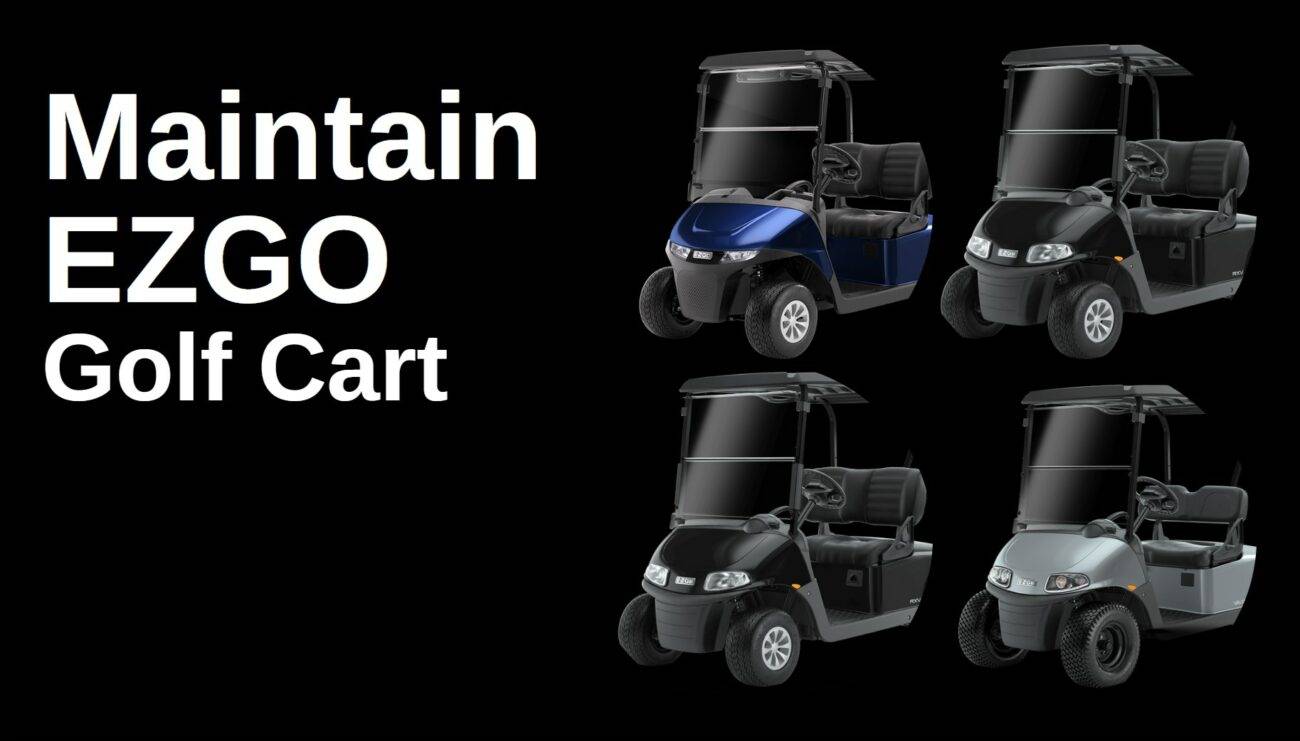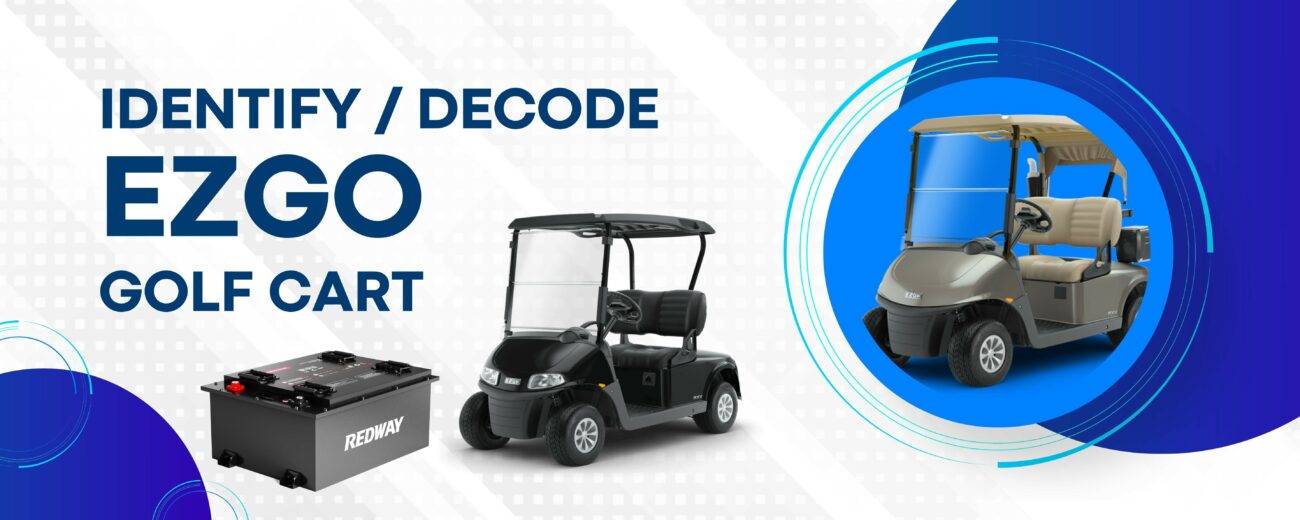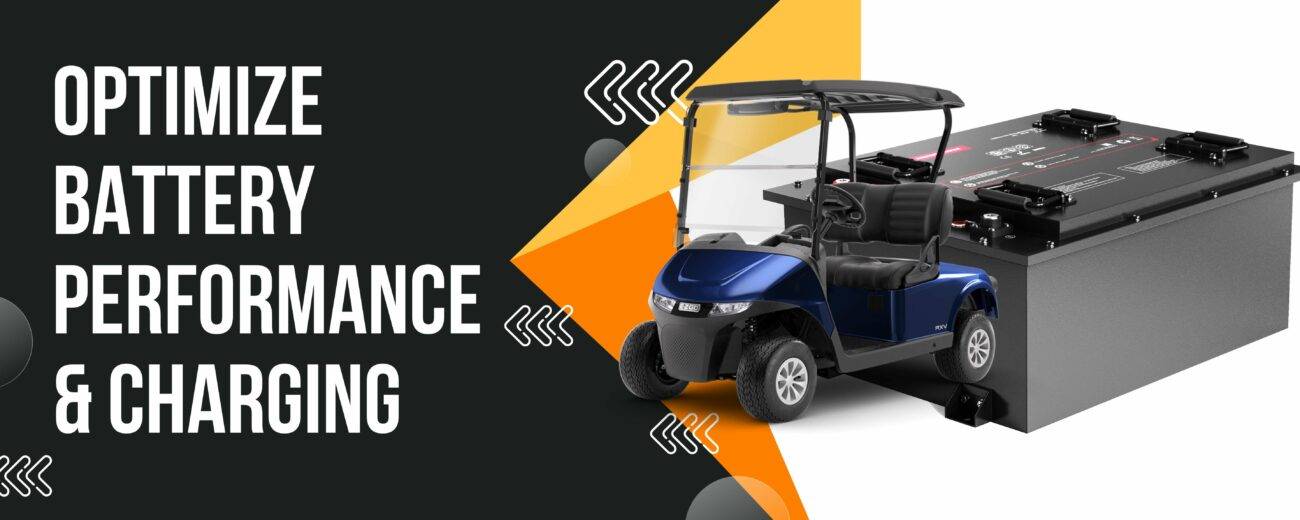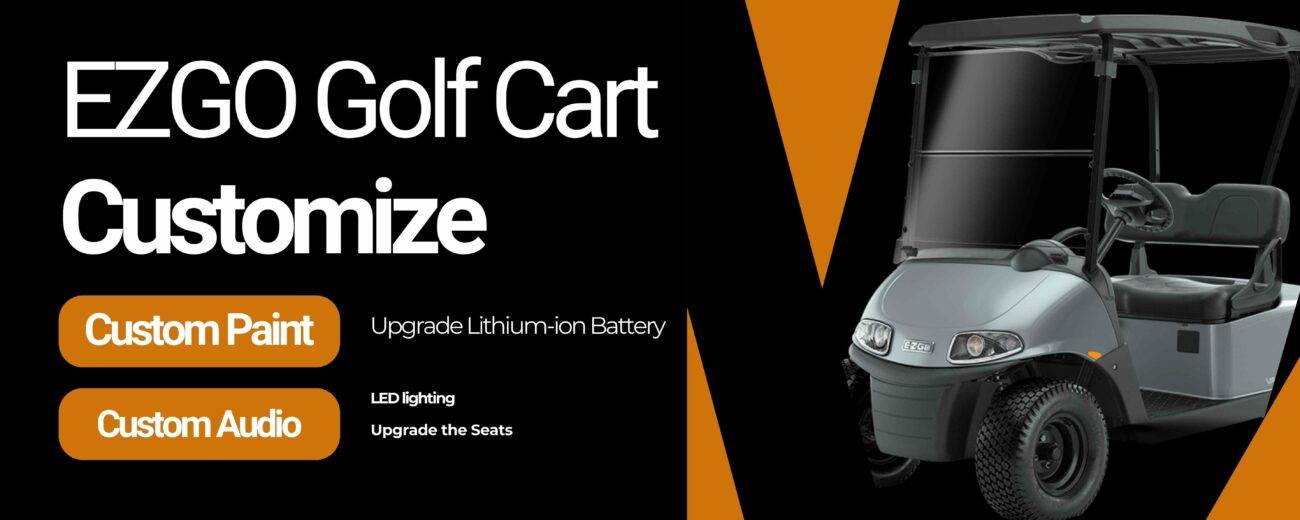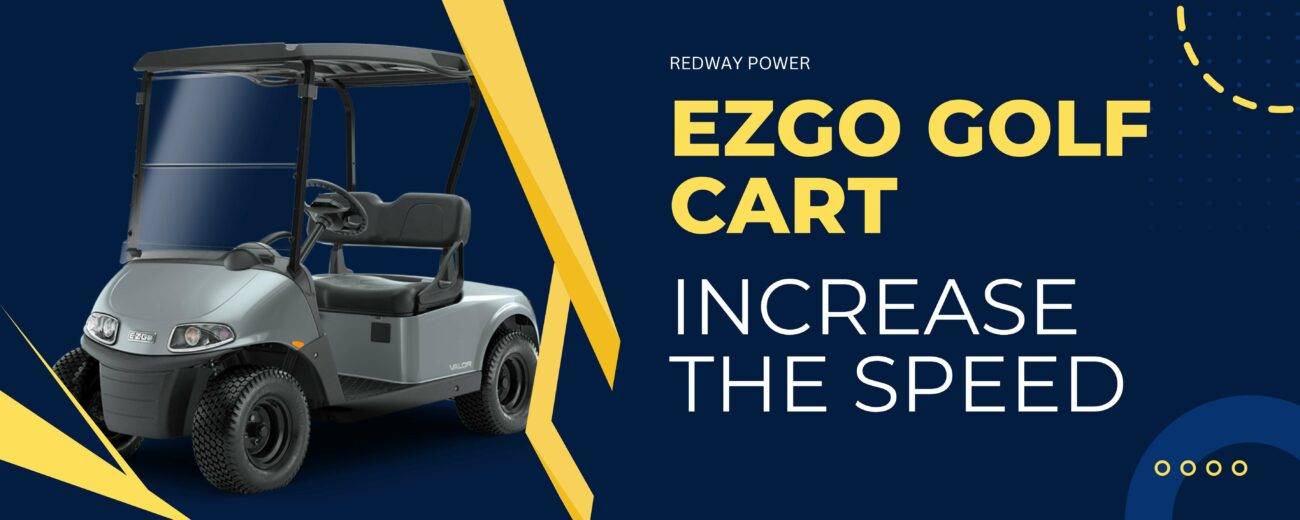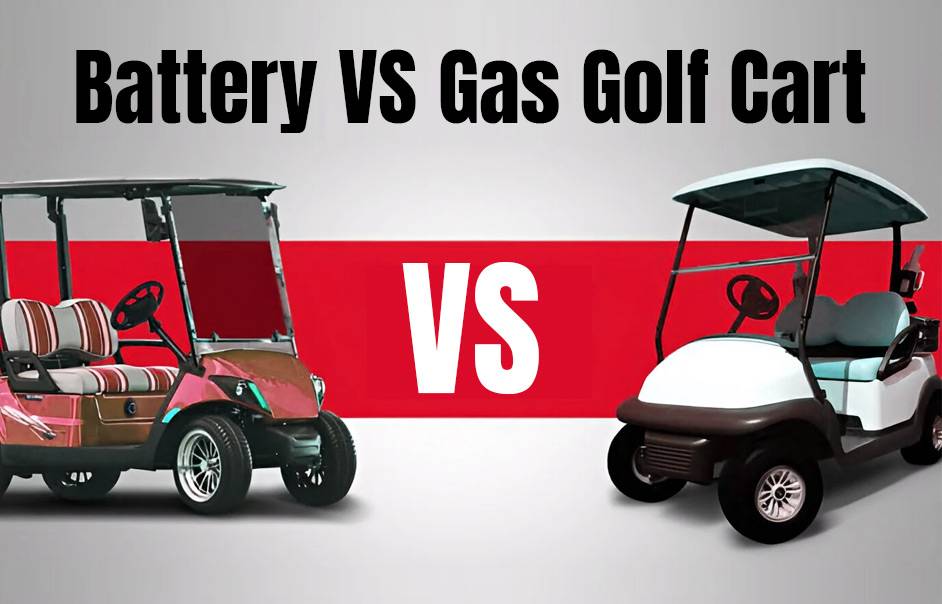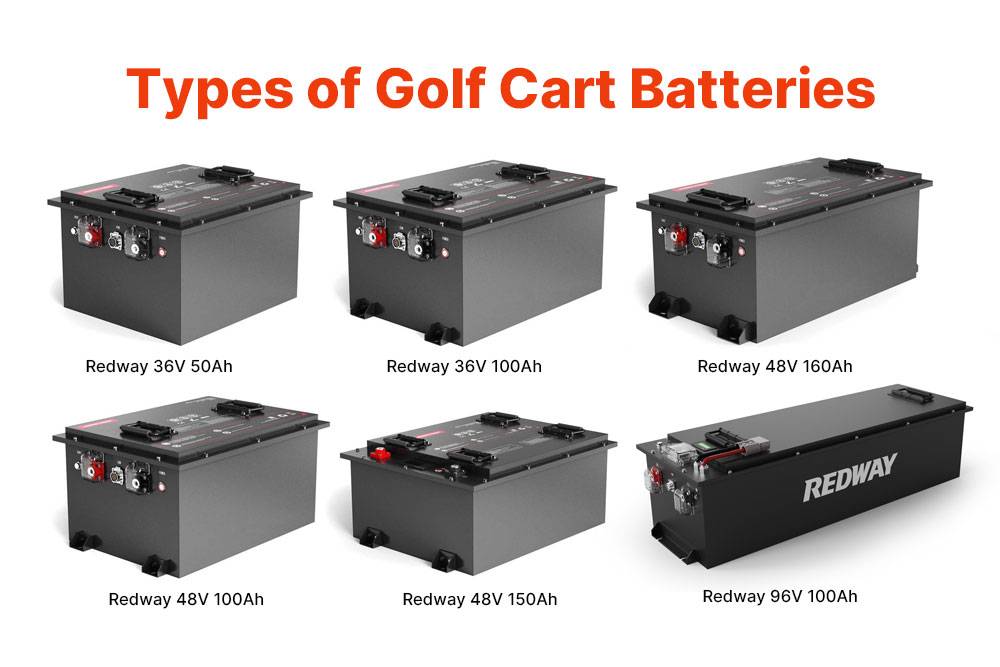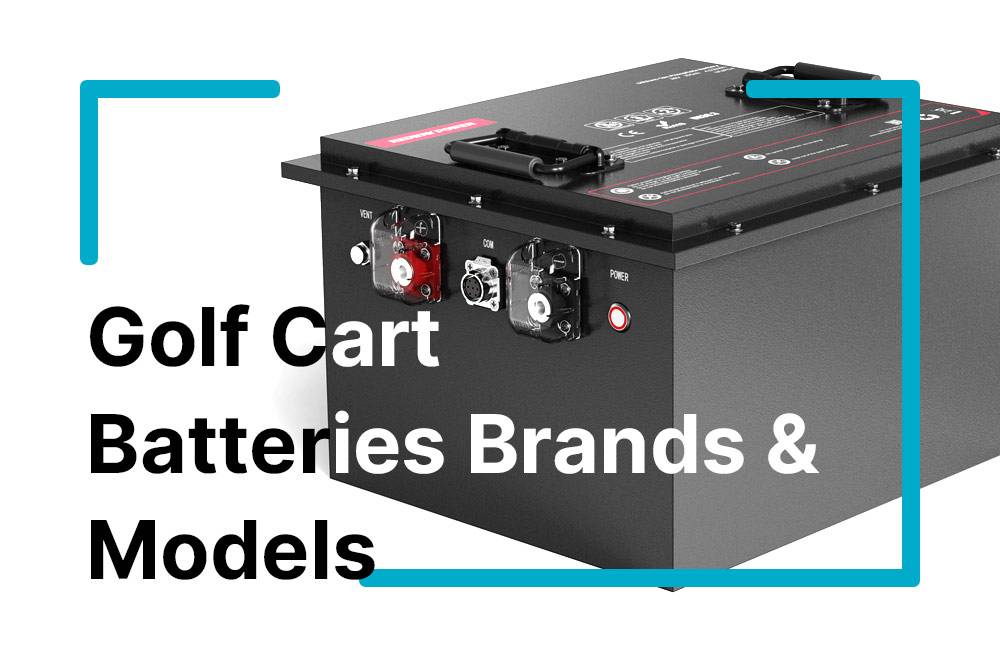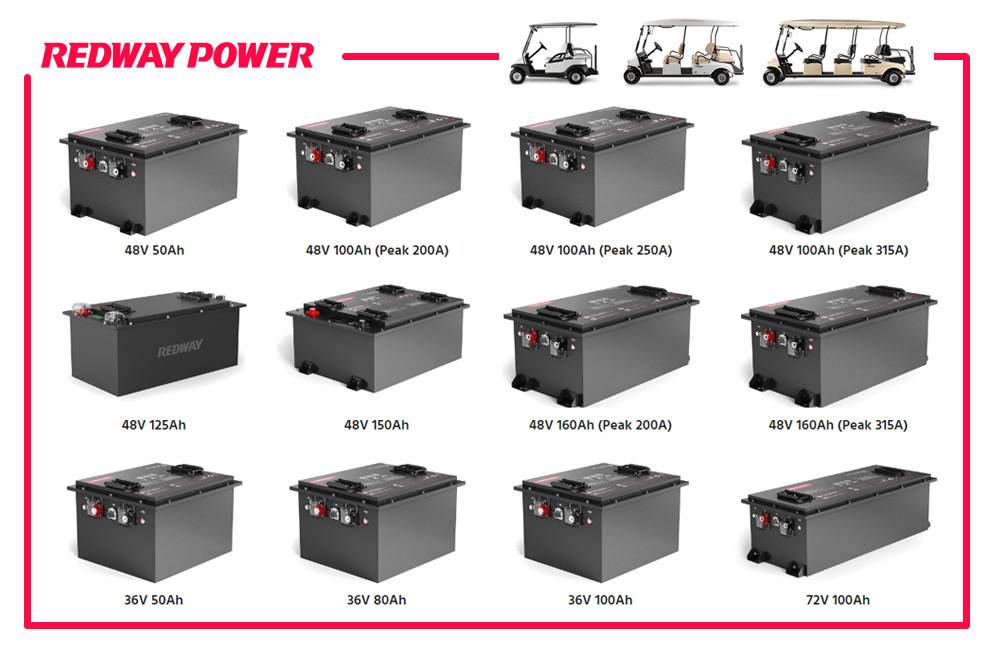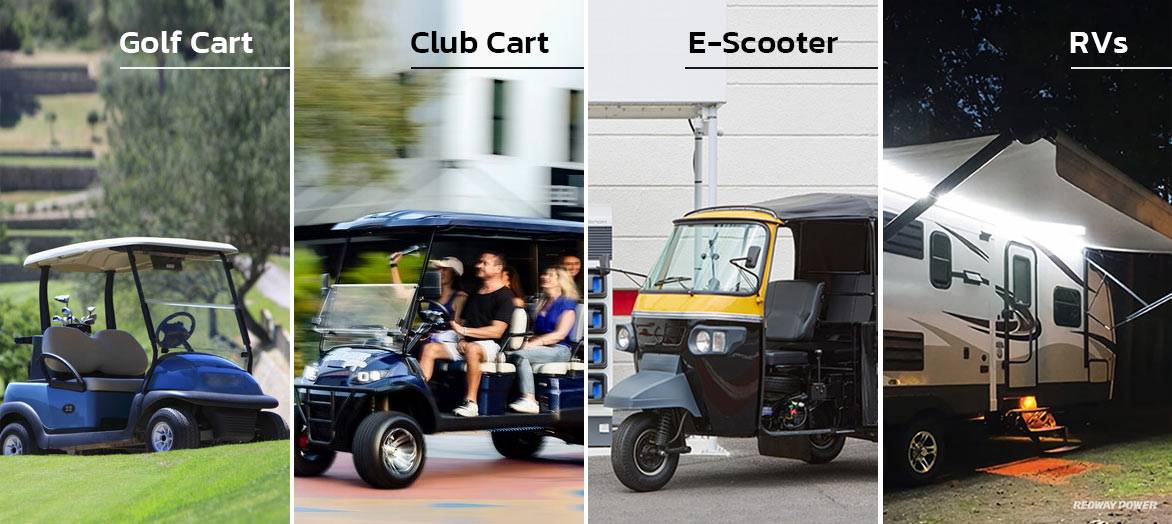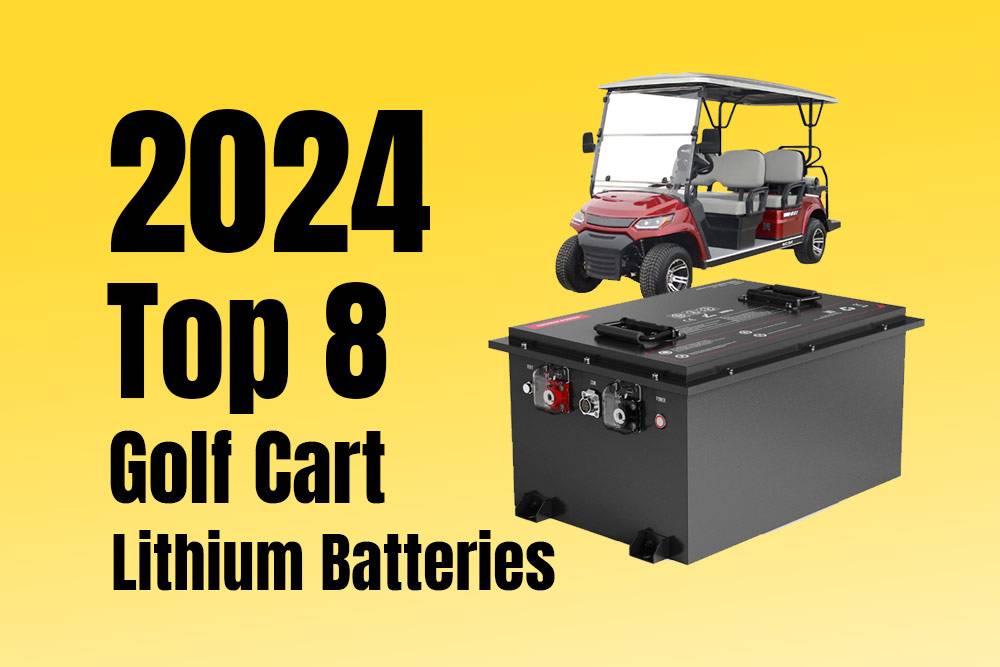Lithium golf cart batteries are transforming the golfing industry with their superior performance and longevity compared to traditional lead-acid types. Manufacturers of these batteries are leveraging the chemistry of lithium to provide golf carts with more efficient, lightweight, and maintenance-free power sources. These advances have led to lithium batteries being a sought-after choice for both manufacturers and consumers alike, prompting a rise in dedicated lithium golf cart battery factories and suppliers.
At the forefront of this shift are the LiFePO4 (lithium iron phosphate) golf cart batteries. Renowned for their safety and stability, LiFePO4 batteries are a popular category within the lithium battery market. Wholesale dealers and manufacturers of these batteries often emphasize the deep cycle nature of LiFePO4, providing significant benefits in terms of cycle life and consistent energy output.
Suppliers and manufacturers are now offering a range of lithium golf cart batteries that cater to various power needs and cart models. It’s crucial for consumers to choose a reputable manufacturer or supplier when upgrading to lithium batteries to ensure they receive a quality product. Many manufacturers provide detailed information about their products, including the built-in Battery Management Systems (BMS), which are vital for protecting the batteries from overcharging, deep discharges, and temperature extremes.
Lithium Golf Cart Batteries Overview
Lithium golf cart batteries, particularly those based on LiFePO4 technology, have gained significant traction in the market due to their enhanced performance characteristics over traditional lead-acid batteries. Manufacturers and suppliers of lithium golf cart batteries offer products that are lightweight, exhibit fast charging capabilities, and maintain a low self-discharge rate, which is beneficial for the longevity and efficiency of usage.
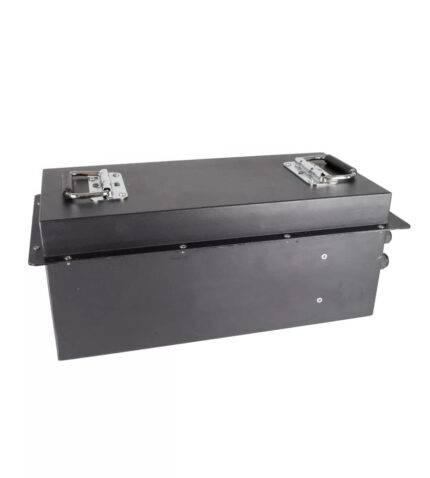
Key Attributes:
- Voltage: Largely found in 36V and 48V configurations to suit different golf cart power requirements.
- Charging Time: Approximately 2.5 hours for a full charge, which is considerably quicker than alternative battery types.
- Cycle Life: They generally offer a longer lifespan, with many capable of several thousand charge cycles before significant capacity degradation occurs.
The batteries often incorporate a built-in Battery Management System (BMS), providing multiple protections against overcharging, deep discharge, overheating, and short-circuiting, which enhances safety and reliability. The BMS also plays a crucial role in balancing the cells and extending the battery’s effective service life.
Manufacturers like RoyPow and suppliers of LiFePO4 batteries provide a variety of options tailored to a wide range of golf carts. The move to lithium batteries by consumers is primarily driven by their long-term cost-effectiveness, maintenance convenience, and eco-friendliness, as they do not emit harmful gases and require less frequent replacement.
Wholesalers offering LiFePO4 golf cart batteries, such as Enduro Power and Ampere Time, cater to the need for reliable power sources in bulk, thus serving the growing demand within the golf industry.
Choosing the Right Golf Cart Battery
Selecting the appropriate golf cart battery is crucial for optimal performance and longevity. This section will guide you through the key considerations.
Lithium vs Lead-Acid Batteries
Lithium golf cart batteries offer several advantages over traditional lead-acid ones. They are lighter in weight, charge faster, and typically last longer, providing a higher return on investment for users. Lithium batteries do not require the regular maintenance that lead-acid batteries do, such as water top-ups and they also have a lower self-discharge rate. For in-depth information, consider the insights on the Golf Span website.
Battery Capacity and Voltage
The battery’s capacity, measured in ampere-hours (Ah), determines how long it can power your golf cart before needing a recharge. Higher capacity batteries are ideal for those who often travel long distances or navigate hilly courses. When it comes to voltage, most golf carts are designed for 36 or 48V batteries. It’s critical to match the battery voltage to your cart’s system for efficient operation. An expert article on The Golf Mine discusses the significance of battery capacity.
Compatibility and Size
Ensuring the battery is compatible with your golf cart is essential. It should fit within the battery tray without requiring modifications. Check for the correct terminal type and configuration as well. The size of the battery must be such that it does not interfere with other components of the cart. Refer to GOLFCARTSTUFF.COM™ for a comparison of different lithium golf cart batteries including their size and compatibility.
Lithium Golf Cart Battery Manufacturers
Lithium golf cart battery manufacturers specialize in the production of lithium-based batteries, offering advanced energy solutions for golf carts. They focus on efficient manufacturing processes and adherence to strict quality and certification standards to meet the evolving needs of consumers and businesses alike.
Manufacturing Processes
The manufacturing of lithium golf cart batteries involves precision and cutting-edge technology. Manufacturers use LiFePO4 (Lithium Iron Phosphate) technology due to its safety, longevity, and reliability. Production lines are often automated to ensure consistency and high throughput. For instance, Enduro Power and companies like RoyPow utilize specialized techniques to construct batteries capable of quick charging and extended cycle life.
Quality and Certification
Leading manufacturers in the lithium golf cart battery market prioritize quality control and certification. They rigorously test products for performance and safety standards. Notably, products from manufacturers like Allied Lithium Golf Cart Batteries undergo tests to ensure they meet certification requirements like CE, RoHS, UL, and IEC standards. Warranty and customer support are also significant considerations offered by these manufacturers to guarantee customer satisfaction.
Wholesale and Factory Direct Supply
In the competitive landscape of golf cart battery supply, wholesale and factory direct channels offer distinct benefits regarding pricing, customization, and volume capacity.
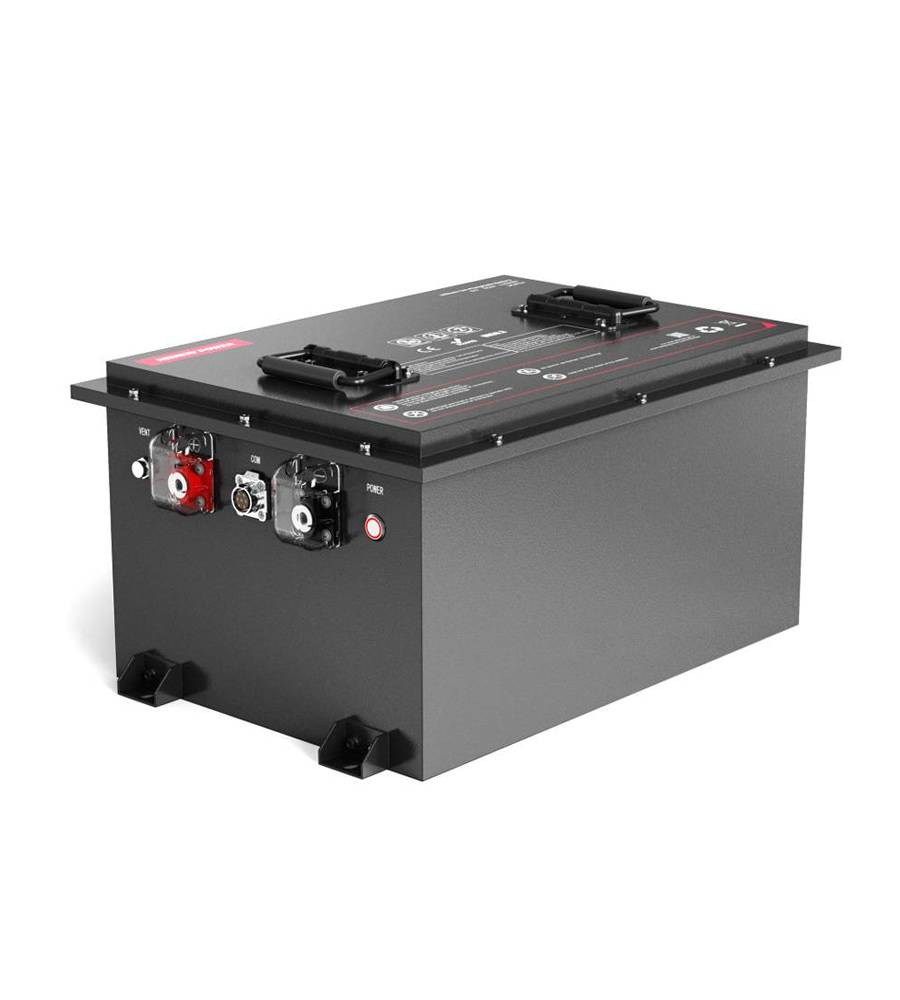
Bulk Order Considerations
When placing bulk orders for LiFePO4 golf cart batteries, customers should assess the total cost, including any potential savings on per-unit pricing. Manufacturers may also provide tiered pricing structures, which motivates larger orders. It’s essential to consider the minimum order quantity (MOQ) set by the manufacturer, as this will dictate the entry point for wholesale rates. Reliable delivery timelines and the ability to sustain consistent supply levels are key factors too.
Factory Direct Advantages
Purchasing factory direct enables buyers to bypass the middleman, resulting in potentially reduced costs. It often allows for direct communication with the manufacturer, paving the way for customized orders that align with specific requirements. Additionally, factory direct relationships can ensure that customers receive the latest technology advancements without delay, as they work directly with the source of innovation.
Maintenance and Safety
When considering golf cart batteries, maintenance and safety are paramount. Adherence to best practices ensures both longevity of the battery and the safety of its users.
Proper Handling and Usage
Lithium golf cart batteries, such as those in the LiFePO4 family, demand careful handling to maintain their integrity. Avoid physical impacts, like dropping or puncturing, which can lead to safety hazards, including the risk of fire. Manufacturers often equip batteries with a Battery Management System (BMS) to prevent common issues such as overcharging, overheating, and over-discharging.
Storage and Charging Procedures
Storage: Lithium golf cart batteries should be kept in a cool, dry place, away from direct sunlight or any heat source. Proper storage conditions prevent degradation and potential hazards.
Charging: Utilize the recommended charger and follow the manufacturer’s guidelines. For instance, the RoyPow 36V Lithium Battery charges efficiently in around 2.5 hours. Never leave batteries charging unattended and avoid charging immediately after use when they are still hot.
Frequently Asked Questions
This section addresses common queries about lithium golf cart batteries, providing clear and factual responses to assist consumers in making informed decisions.
What are the advantages of using lithium batteries in golf carts compared to traditional lead-acid batteries?
Lithium batteries for golf carts offer quicker charging times and a longer lifespan compared to lead-acid batteries. They are also lighter, contributing to more efficient energy usage and less wear on the golf cart.
How long does it take to fully charge a lithium golf cart battery?
A full charge of a lithium golf cart battery typically takes 3 to 5 hours, though this can vary depending on the specific battery’s capacity and the charger used.
Are there any maintenance requirements for lithium golf cart batteries?
Lithium golf cart batteries generally require less maintenance than lead-acid batteries. They do not need to be filled with water, and they have a lower risk of sulfation, which can extend their functional life.
What should I look for when choosing a manufacturer for lithium golf cart batteries?
When selecting a manufacturer for lithium golf cart batteries, look for established brands with a track record of reliability and customer service. Consumer reviews can offer insight into both product quality and the manufacturer’s responsiveness.
Can lithium golf cart batteries operate efficiently in extreme weather conditions?
Lithium golf cart batteries can typically handle extreme temperatures well, though performance can be affected at very high or very low temperatures. Always check the manufacturer’s specifications for temperature ranges.
How do I properly dispose of a lithium golf cart battery at the end of its life cycle?
Proper disposal of a lithium golf cart battery involves taking it to a facility equipped to handle lithium-ion battery recycling. These batteries should not be disposed of in regular landfill waste due to their toxic components.

